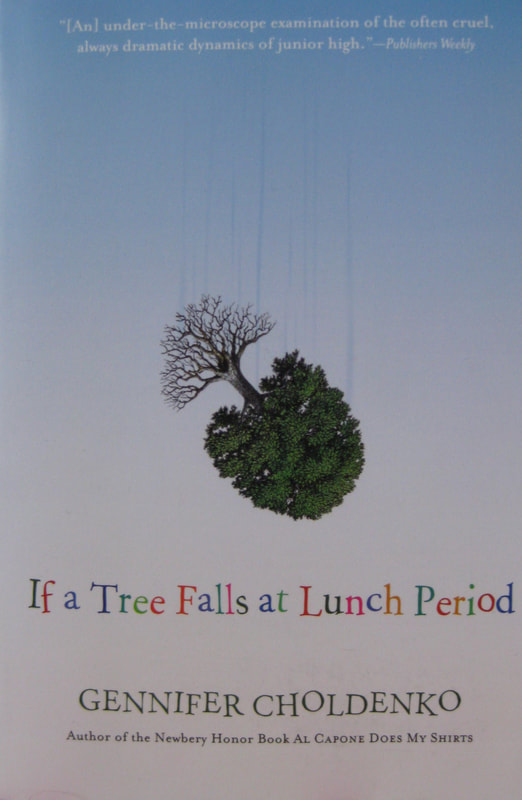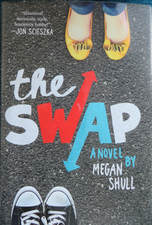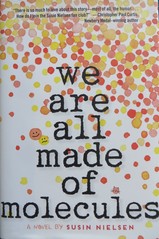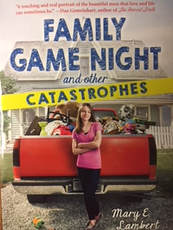If a Tree Falls at Lunch Period
|
|
Book Summary:
Kirsten is not looking forward to the start of seventh grade, but things aren't so great at home, either. Things between her parents are tense, but at least she gets along with her brilliant younger sister, Kippy. Kirsten's former best friend, Rory, is suddenly determined to fit in with the popular crowd, and Kirsten's mother would love it if Kirsten would work harder to fit in, too. Walker is starting a new school this year, on a scholarship. Before long, he's a student council representative, maintaining his 4.0 GPA, and standing up for people when he sees injustice. His single mom is often too controlling, and he is one of only three African American students at the new school. Walk's quiet confidence keeps him steady, until he discovers a secret. Book Review: This book alternates the point of view between Kirsten and Walk, and this technique works admirably in other books (Schooled, The Lemonade War), but is somewhat jarring at the beginning of each of Walk's chapters, since his are told in third person, while Kirsten's chapters are told using first person. In spite of its Newbery recognition, I wasn't a big fan of Al Capone Does My Shirts by the same author, and prefer this book. I suspect it is because this author doesn't sprinkle any pretty dust on her realistic fiction, but goes right for the ugly jugular, whether she is showing us Brianna's racism, or Rory's betrayal, or the way Rachel champions the mean girls instead of Kirsten. However, because she adds a strong dose of humor to the ugly truths about middle schools and families, it's easier when the characters disappoint us, and extra satisfying when they succeed. While the majority of middle school books are about navigating social groups, Gennifer Choldenko's approach is uniquely brave. Just as Paula Danziger and Judy Blume connected very personally with readers in the 1980s, this author manages to create characters with authentic middle school worries, and show us their emerging independence from their parents and other authority figures as they explore larger societal issues. For example, it's impressive, but also sad that Kirsten is able to analyze the dynamics between friends at her middle school, and make more mature choices than her mother. The book is light on action, emphasizing dialogue and reflection. It would be especially useful to read as part of a student discussion group about peer groups, school policies and justice, and family issues. "Plus, then I'm sitting next to her all lunch, and that's risky, because I haven't mastered the art of kissing her feet. I always trip on the way down. |
If you like this book, you may also like . . .











